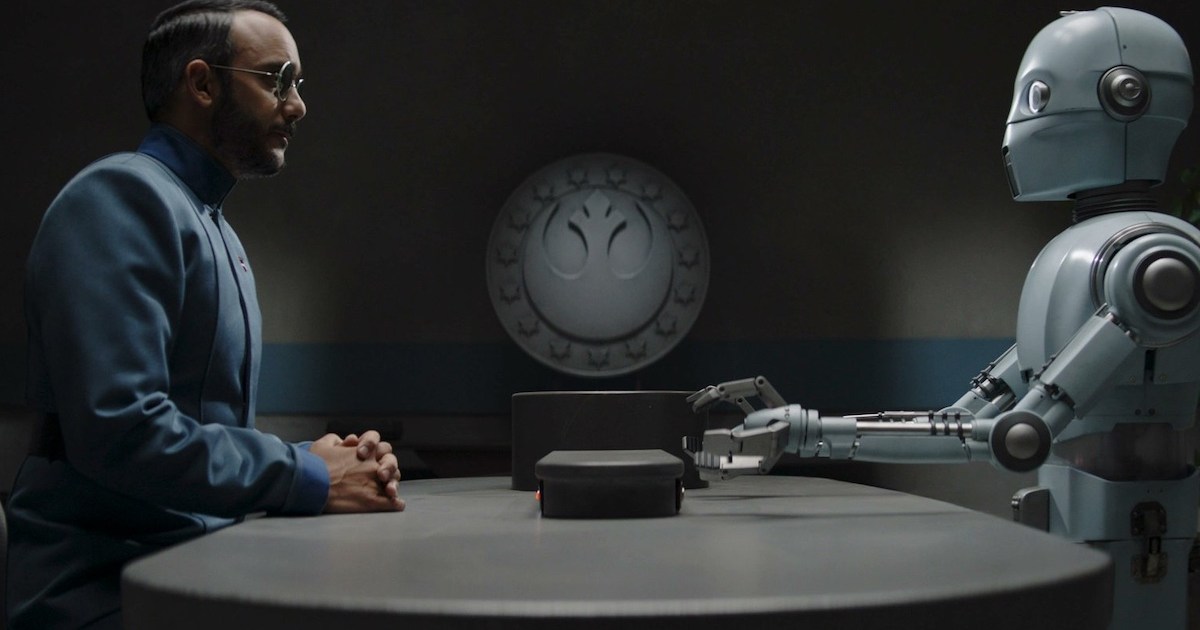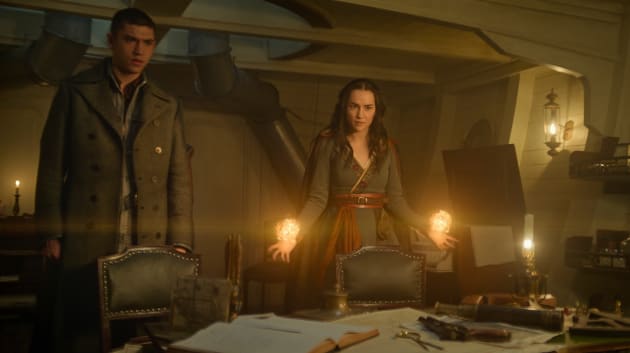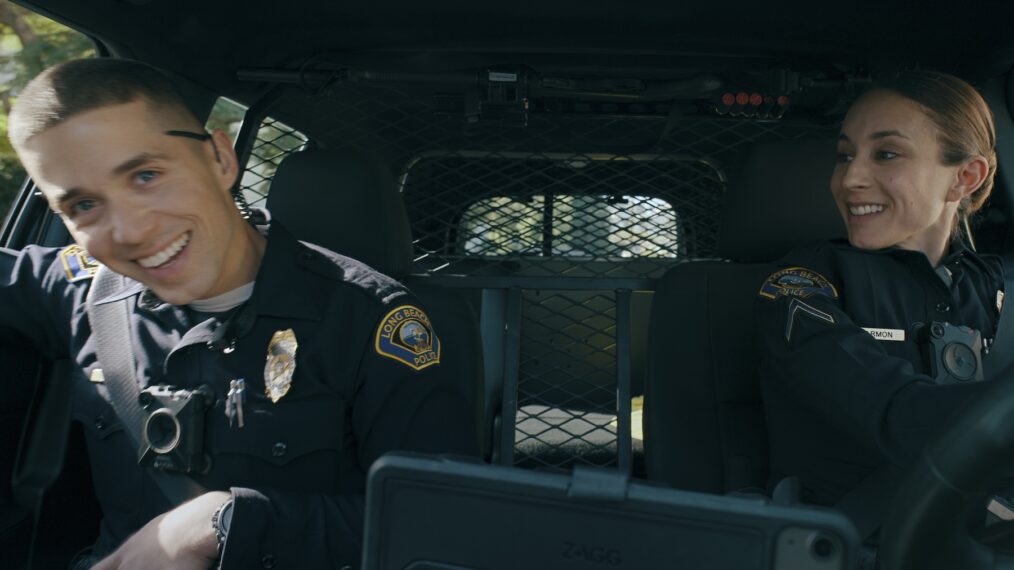The Mandalorian “Chapter 19” stands out as one of the most intriguing episodes in Star Wars thanks to some compelling storytelling and a mysterious plot reminiscent of the Andor series. For once, “The Convert” put the adventure of the titular hero and Grogu aside for a moment — after showing some remarkable dogfights — to focus on Dr. Penn Pershing (Omid Abtahi), a familiar face that made his live-action appearance in the series premiere. When the brilliant scientist met Elia Kane — a former communications officer serving on Moff Gideon’s cruiser — things took a nasty turn for Dr. Pershing.
Who Are Dr. Pershing and Elia Kane?
Dr. Pershing is a clone engineer who previously worked for The Client and Moff Gideon, showing much knowledge about the experiments the Empire conducted on Grogu. Following Moff Gideon’s capture, Dr. Pershing joined the New Republic’s Amnesty Program designed for the former Empire sympathizers to earn a shot at redemption. Dr. Pershing expressed sincere gratitude for his second shot and wanted to use his abilities to help the New Republic. However, his past with the Empire and involvement in cloning technology caught up with him. Despite his desire to use his knowledge for good, the New Republic and potentially even former Imperial loyalists still saw him as a threat.
When Dr. Pershing confessed to Kane he wanted to continue his cloning research — a practice outlawed by the Republic –, Kane offered to help him steal the necessary materials for his research. Together, they sneaked aboard a decommissioned Imperial-class Star Destroyer, where Kane ultimately betrayed Pershing to the New Republic’s law-keepers and turned him over to them. Despite her apparent involvement with the New Republic, it appeared Elia might be working to protect the interests of the Empire as she set up Dr. Pershing’s capture, possibly because she wanted to prevent the New Republic from gaining access to cloning technology. It’s also possible that she may be working for Moff Gideon, who was still loyal to the Empire and showed a keen interest in clones.
The Mandalorian and Andor
In addition to their action-packed storytelling and a strong emphasis on developing their lone-wolf-archetype protagonists, both The Mandalorian and Andor explore the moral ambiguity of the Star Wars universe, where characters often find themselves in situations where there are no clear-cut answers or easy choices. The Mandalorian, for instance, frequently explores the idea of what it means to be a “good” or “bad” person in a lawless galaxy, while Andor similarly delves into the moral complexities of the Rebel Alliance’s fight against the Empire.
The Mandalorian took from there to show that even after the Empire’s fall, some of the ways used by the New Republic to convert former Empire sympathizers are questionable. A clear example is the mind flayer device used to soothe Pershing’s traumatic memories and help him overcome his indoctrination by the Empire. The fact that the Mon Calamari technician didn’t even listen to Pershing’s explanation may raise eyebrows. And how is it even possible that Kane could secretly sabotage the mind-wiping procedure, worsening its effect on Pershing’s mind?
There still are some pending questions, but surely, Star Wars is at its highest when savvily mixes action-packed sequences with nail-biting political plots. Andor and The Mandalorian are the perfect examples.


























































![Mason Ramsey – Twang [Official Music Video] Mason Ramsey – Twang [Official Music Video]](https://i.ytimg.com/vi/xwe8F_AhLY0/maxresdefault.jpg)




















